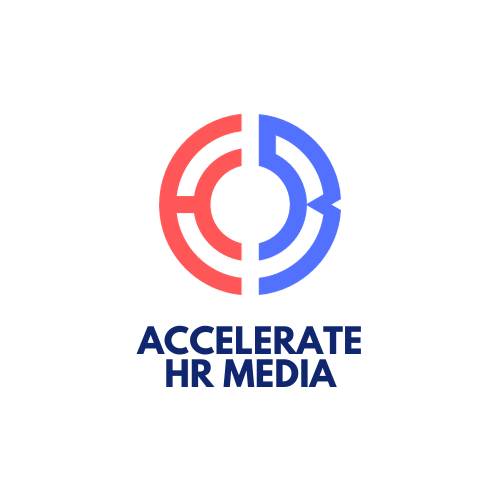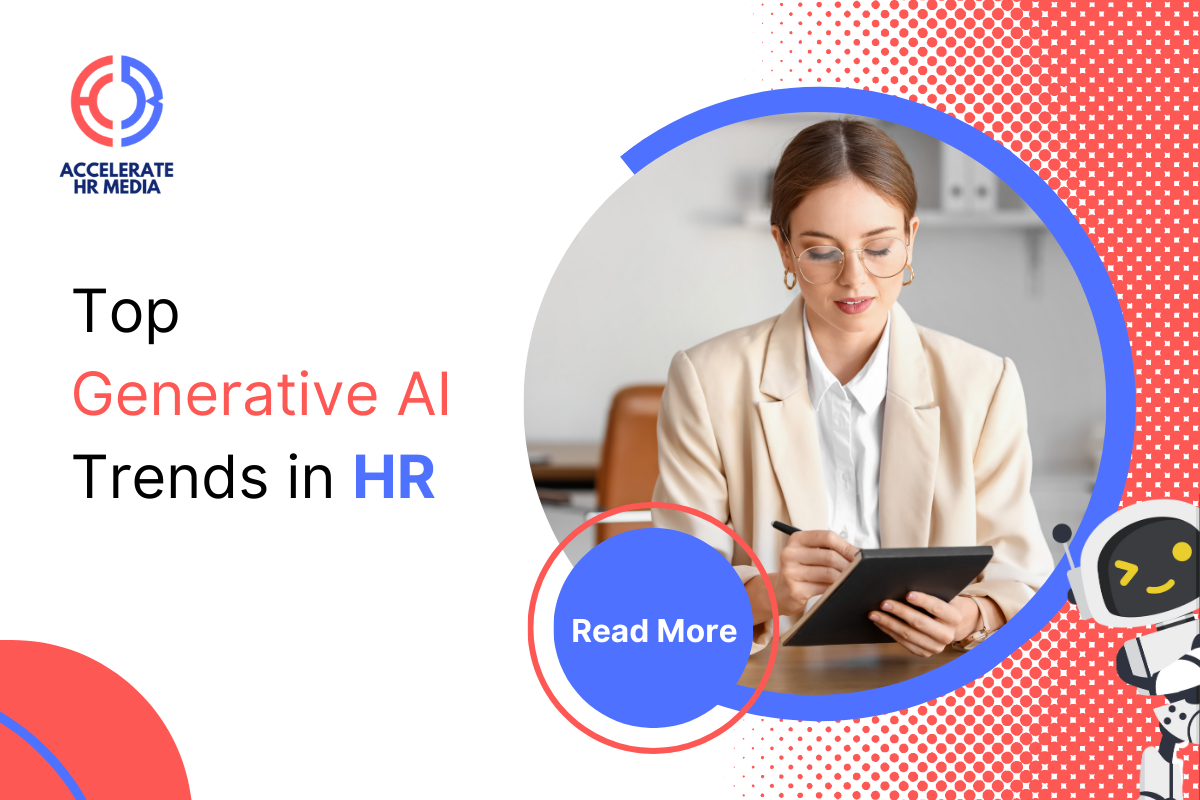In today’s fast-changing business world, companies are always looking for ways to improve how they work. One area that is seeing a lot of changes is human resources (HR). With the rise of generative AI, HR professionals can now use technology to make their jobs easier and more efficient. Generative AI can help with various tasks, from recruitment to employee management. In this blog, we will explore the top generative AI trends in HR and how they can benefit businesses.
Understanding Generative AI in HR
Generative AI is a type of artificial intelligence that can create content, analyze data, and even help with decision-making. In HR, this technology can be used to automate tasks, improve communication, and enhance the overall employee experience. For example, generative AI can help HR teams write job descriptions, analyze resumes, and even suggest training programs for employees.
The Importance of Generative AI in HR
Generative AI is becoming increasingly important in HR for several reasons:
- Efficiency: AI can automate repetitive tasks, allowing HR professionals to focus on more strategic activities. This leads to increased productivity and better use of resources.
- Better Decision-Making: Generative AI helps HR teams analyze large amounts of data quickly, providing valuable insights that can inform decision-making.
- Enhanced Employee Experience: By using AI-driven tools, HR can create a more personalized experience for employees, improving engagement and satisfaction.
- Cost Savings: Automating processes can reduce labor costs and minimize errors, leading to significant savings for organizations.
Top Generative AI Trends in HR
As we look to the future, several trends are emerging that are set to shape the role of generative AI in HR. Let’s explore these trends in detail.
1. Digital Transformation
Digital transformation is a major trend affecting many industries, including HR. This means using digital technologies to change how businesses operate and deliver value to customers. In HR, digital transformation involves adopting tools that streamline processes and improve communication.For example, many HR departments are moving to cloud-based platforms that allow for easier access to information and collaboration. This shift enables HR teams to work more efficiently and respond quickly to the needs of employees. As digital transformation continues, generative AI will play a crucial role in helping HR teams adapt and thrive.
Benefits of Digital Transformation in HR
- Accessibility: Cloud-based systems allow HR professionals to access information from anywhere, making it easier to work remotely.
- Collaboration: Digital tools enable better communication between HR teams and employees, leading to a more connected workplace.
- Flexibility: Businesses can quickly adapt to changes in the market or workforce needs by using digital solutions.
2. Innovations in B2B Payments
B2B payments are changing rapidly, with new technologies making transactions faster and more secure. Traditional payment methods, such as checks and wire transfers, are being replaced by electronic payment systems that simplify the process.For HR, this means that payroll and expense management can be handled more efficiently. Generative AI can help automate these processes, reducing the time spent on manual tasks and improving accuracy. By embracing innovations in B2B payments, HR departments can enhance their overall efficiency and ensure that employees are paid accurately and on time.
Examples of Innovations in B2B Payments
- Digital Wallets: Some companies are using digital wallets to make payments easier and faster.
- Automated Invoicing: AI can help generate and send invoices automatically, reducing the time spent on paperwork.
- Real-Time Payments: New technologies allow for instant payments, improving cash flow for businesses.
3. EDI Systems Evolution
Electronic Data Interchange (EDI) systems have been a staple in B2B communication for many years. However, these systems are evolving to meet the demands of modern businesses. Traditional EDI systems can be complex and difficult to manage, but newer solutions are becoming more user-friendly.The evolution of EDI systems allows HR departments to share information more easily with other departments and external partners. This improved communication can lead to better collaboration and faster decision-making. By leveraging advancements in EDI systems, HR can enhance its integration with other business functions and improve overall performance.
Benefits of EDI Systems Evolution
- Simplicity: Newer EDI systems are easier to use, making it simpler for HR teams to manage data.
- Speed: Improved EDI solutions allow for quicker data exchange, which can help in decision-making.
- Cost-Effectiveness: Modern EDI systems can reduce costs by minimizing errors and improving efficiency.
4. iPaaS Technology
Integration Platform as a Service (iPaaS) technology is gaining popularity as a solution for B2B integration challenges. iPaaS provides a cloud-based platform that allows businesses to easily connect different applications and systems. This technology simplifies the integration process, enabling companies to streamline their operations without the need for extensive IT resources.In HR, iPaaS can help integrate various systems, such as applicant tracking systems, payroll software, and performance management tools. This integration allows HR professionals to access all the information they need in one place, improving efficiency and decision-making. As more businesses recognize the benefits of iPaaS technology, we can expect to see its adoption grow in the HR space.
Advantages of iPaaS Technology
- Ease of Use: iPaaS solutions are designed to be user-friendly, allowing HR teams to set up integrations without needing extensive technical knowledge.
- Scalability: As businesses grow, iPaaS can easily adapt to new needs and integrate additional systems.
- Cost Savings: By reducing the need for extensive IT support, iPaaS can save businesses money while improving efficiency.
5. Employee Management with AI
Employee management with AI is becoming an essential part of HR practices. Generative AI can help HR professionals manage employee performance, identify skill gaps, and provide personalized training recommendations. By analyzing data from various sources, AI can offer insights that help HR teams make informed decisions about employee development.For example, generative AI can analyze performance data to identify trends and suggest targeted training programs. This allows HR to support employees in their growth and development, leading to a more engaged and skilled workforce. As businesses continue to focus on employee development, the role of AI in managing talent will only increase.
Benefits of Employee Management with AI
- Personalized Development: AI can tailor training programs to meet the specific needs of each employee, enhancing their skills and career growth.
- Performance Tracking: AI can help HR teams monitor employee performance in real time, allowing for timely feedback and support.
- Increased Engagement: By focusing on employee development, businesses can create a more motivated and satisfied workforce.
Conclusion
The future of B2B integration in HR is being shaped by several emerging trends, including digital transformation, innovations in B2B payments, the evolution of EDI systems, the rise of iPaaS technology, and employee management with AI. As businesses adapt to these changes, effective integration will be crucial for maintaining efficiency and competitiveness in the marketplace.By embracing these trends, companies can improve their operations, enhance collaboration, and ultimately drive growth. Staying informed about the latest developments in generative AI will help businesses navigate the evolving landscape and seize new opportunities.In summary, understanding and adapting to the trends shaping the future of B2B integration is essential for success. By leveraging technology and data, businesses can create a more connected and efficient environment that benefits everyone involved in the B2B ecosystem.As the world of HR continues to evolve, the importance of generative AI will only grow. By staying ahead of the curve and embracing emerging trends, companies can position themselves for success in the years to come. Whether it’s through digital transformation, innovative payment methods, or improved employee management, the future of HR integration is bright for those who are willing to adapt and innovate.In conclusion, the integration of generative AI into HR practices is not just a trend; it is a necessary evolution. As companies strive to enhance their HR functions, understanding these trends will empower HR professionals to make strategic decisions that drive efficiency, improve employee satisfaction, and ultimately contribute to the overall success of the organization.

